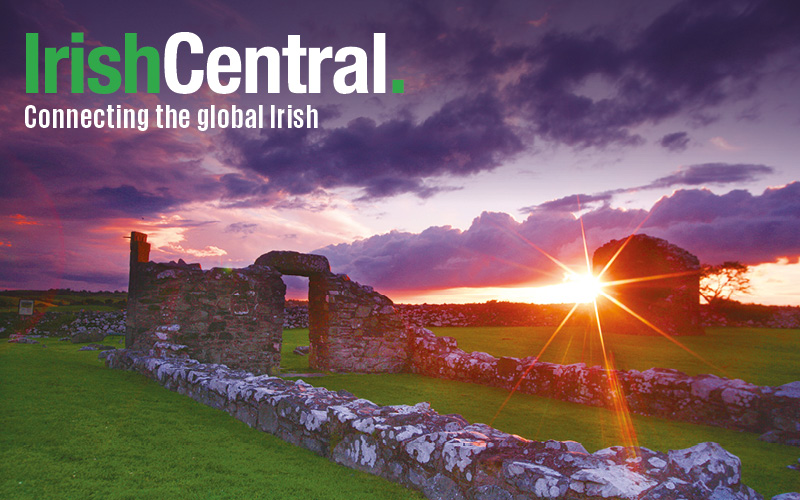| Illustration by Caty Bartholomew |
The best of them represent whatever it is that makes the Irish different to all other Europeans. The best of them, in full flight, catch the mystery and somehow the magicality of us crazy Celts.
They are getting scarcer, these lone ones. They are dying out by the generation.
I remember a time they were as common as cabbage butterflies in rural Ireland. No longer the case.
Nowadays we have all mutated into bland Europeans of the mainstream. We are colorless, odorless, tasteless. We wear the same clothes, affect the European styles, try to be just as the mainland millions of others.
We strive to be model Europeans, and fundamentally we are far too pagan to make a good fist of that. But as a race we are good enough actors to fool many of our visitors.
And so we are becoming to our tourists just another forgettable tiny segment of the people of the continent. And we don't have the easy compensation of lots of sunshine.
Against that background, the flamboyant Bard of Mologga and his dwindling band of brothers and sisters are worth their weight in gold to the tourism industry.
We have more than enough sharp-selling Suits armed with laptops. The government should instantly begin to pay a significant weekly stipend or gratuity to this merry band.
It would not cost too much. There are only a few thousand of them left.
They will be as dead as Dodos unless they are deliberately preserved. We will miss them when they are gone.
The Bard of Mologga is a fine example of the species. No longer in the full flush of youth either, he cuts the kind of figure you notice at once as a "character" when he enters a room.
Maybe he resembles a younger Lee Marvin with silvered hair and a rascally pair of eyes. And he has a flow of language and yarns to beat the band.
It is in keeping with the image that he drives a jeep which, he says, is of the type "that won the last war,” and when I met him, was wearing a black leather jacket with some style.
And inside minutes, at the recent Trevor/Bowen Summer School in Mitchelstown, every overseas visitor in the hotel was being cupped in the palm of his hand. They were enjoying every word of every yarn.
You and I might know that most of the stories were to be taken with a pinch of salt. What does that matter?
It was great Irish craic. They won't forget the Bard of Mologga too soon.
As a matter of fact the man's name is Mike Cullen Aherne from the nearby parish of Kildorrery. He is a member of the organizing group of the stimulating and enjoyable event.
I would know well from experience that he does not put in anything like the volume of organizing work of, say, the genial secretary Liam Cusack, but he surely compensates for that by what he brings to the crucial social side of things.
And, genuinely, the man is a real poet of some sensitivity and power. I read a poem he wrote about his father.
The first verse goes, "I have a memory of the man/all six feet tall of him/bent over the reaping/from the headlands/I saw him finding work/ for scrap iron and wood/the use of a craftsman/out of big calloused hands."
The powers that be in our tourism industry, I say, should start skimping on expensive consultants and Suits and concentrate instead on sending a few spirits like the Bard of Mologga into the foreign markets to spread the Irish message. It would work a treat.
…And I'm at a matterless enough midweek hurling match between neighboring parishes back home in Clare. I stop merely because I saw the cluster of cars and heard the crowd noise as I passed through East Clare.
I will not name the teams for fear of libel or slander actions because GAA truths can be extremely flexible following publicity. But this is what I saw with my own two eyes.
A burly player who was clearly very fired up was strongly warned by the referee to cool down but continued to play foully before getting a yellow card before halftime.
The second half was only minutes old before he again flattened an opponent, received a well-deserved red card and was ordered off the pitch by the referee. He refused to leave the field.
When his own colleagues prevailed upon him to follow the order he struck out at them and decked two of them. When finally leaving the field he ripped off his helmet and struck one of his own club officials with it when he reached the sideline. He then ripped off his jersey and danced upon it with considerable fury.
And finally, before disappearing, he appeared to "moon" all present at the game!
I wonder what punishment will that player get from the GAA? I will inquire and let ye know the result later. It should be interesting.




Comments